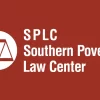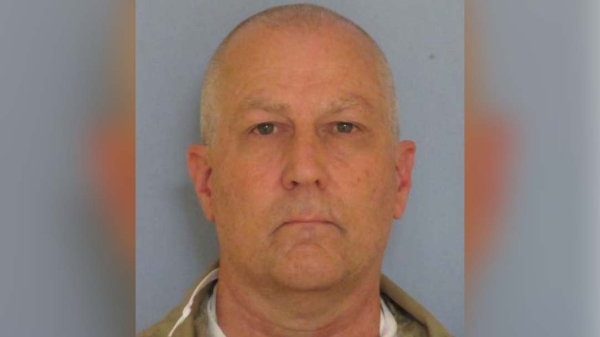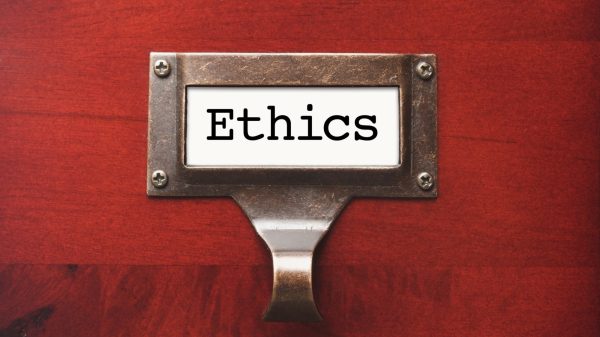By Bill Britt
Alabama Political Reporter
MONTGOMERY—A letter from Attorney General Luther Strange and Scott Anderson, President of the Alabama District Attorney’s Association to State legislators made it clear, that despite the flawed and confusing opinion given to Rep. Patrica Todd (D-Birmingham), by the Alabama Ethics Commission it was still a felony crime for a public official to accept a thing of value from a lobbyist or principal.
An August 5, 2015, Advisory Opinion opened a gaping hole in the ethics law when the Commission found that Todd could receive a salary as director of the Human Rights Campaign (“HRC”), which is a group or principal that lobbies on behalf of issues that are regularly before the Alabama Legislature.
The opinion sent shockwaves of disbelief into the law-enforcement community, which called for the Commission to reconsider its opinion. In the opinion, the Commission found that Todd’s advocacy, on behalf of her employer’s agenda, did not violate existing ethics laws, such as conflict of interest or personal gain. It also found little to restrict her from raising money for the 501(c)(4) non-profit, as long as there wasn’t an implied cohesion or promise. The commission also found in this instance that advocating legislative positions favored by her employer, introducing legislation favored by, or even written by her employer, was not a conflict of interest. It also found that Todd’s seeking votes, or speaking out for or against legislation favorable to her client, did not violate personal gain prohibitions under the ethics code.
The Attorney General and District Attorneys immediately asked for the Commission to reconsider its opinion, and on October 7, 2015,the Commission did so, replacing the original with Opinion 2015-14.
Thursday’s letter states, “The new Opinion 2015-14 is a significant improvement over the original then emphasizes three aspects the new Opinion stating, “Opinion 2015-14 is emphatic that public officials cannot serve as hired lobbyists… Unlike the original opinion, which created a non-textual exception to the Ethics Laws for “issue advocacy.” The new Opinion further makes clear, public official “cannot be paid for the purpose of promoting or ‘in any manner’ attempting to influence the introduction or defeat of legislation before ‘any legislative body’ which includes local legislative bodies…and “explains that a legislator must abstain from sponsoring, promoting, seeking to influence, or voting on legislation.
We want to emphasize three aspects of Opinion 2015-14 that we believe resolve many of the questions that public officials and members of the public have raised. First, revised Opinion 2015-14 is emphatic that public officials cannot serve as hired lobbyists. Unlike the original opinion, which created a non-textual exception to the Ethics Laws for “issue advocacy,” the revised Opinion rejects that proposed exception. The Opinion states that a public official “cannot be paid for the purpose of promoting or ‘in any manner’ attempting to influence the introduction or defeat of legislation before ‘any legislative body’ which includes local legislative bodies.” Opinion No. 2015-14 at 6. The Opinion further explains that a legislator must abstain from sponsoring, promoting, seeking to influence, or voting on legislation that his or her employer drafts or “endorses in any respect.”
Strange also reminds lawmakers that the Opinion, again emphasizes they “cannot “circumvent the restrictions in this opinion” by disguising the source or supporters of proposed legislation.”
The letter states, “Second, revised Opinion 2015-14 is very clear that it does not address whether it is legal for Rep. Todd to accept a salary from HRC.
This is a matter of contention at the State House as the Ethics Commission did not address the legality of Todd’s employment with HRC. It is widely believed that Todd’s job as director violates ethics laws, and that she should resign her job or her office.
Strange writes, the “Opinion expressly makes no conclusions about whether Rep. Todd ‘s employment relationship “is proper or improper…This is an important limitation on the scope of the Opinion. Because Opinion 20 15- 14 expressly declines to address whether Rep. Todd ‘s employment relationship is “proper or improper,” the Opinion does not support anyone who might consider entering into an employment relationship like Rep. Todd’s.”
Finally, he informs State law makers, Opinion 2015- 14 does not change or even address provisions of the Alabama Code that prohibit lobbyists and principals from giving “things of value” to public officials.”
Indicted Speaker Mike Hubbard tried to use the original Opinion as a means to show he had done nothing wrong by excepting hundreds of thousands of dollars from lobbyists and principals; however, the new Opinion has dashed those hopes.
Strange again states, that the actions taken by the Attorney General’s Office or the District Attorneys, is not a reflection on Todd or HRC. “Our original request for reconsideration emphasized that it was not and is not an attack upon Rep. Patricia Todd, the HRC, or any position taken by any LGBT organizations. This position has not changed. Our concern is not with the substance of any position taken by the HRC or Rep. Todd. Rather, we requested reconsideration of the August 5, 2015 opinion because of that opinion’s ramifications on the rule of law and its nullifying effect on the Alabama ethics code. The Ethics Commission’s new opinion largely addresses those concerns,” wrote Strange.
There still remains unanswered questions as to Todd’s employment, as it has not been fully addressed.

















































